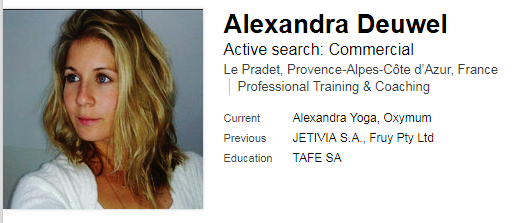The 226 members of the House of Representatives and Senate will receive a base salary which is almost six times higher than the June 2017 full-time minimum wage – commencing on 1 July 2017.
The Tribunal has decided to increase remuneration by 2 per cent for public offices in its jurisdiction, with effect from 1 July 2017…….
In conducting its annual review of remuneration, the Tribunal takes account of economic conditions in Australia, past and projected movements in remuneration in the private and public sectors (including the APS), as well as the outcomes of reviews of public offices completed by the Tribunal. In order to inform its conclusions the Tribunal draws upon authoritative external sources such as the published material available from the Government, the Reserve Bank of Australia (RBA) and the Australian Bureau of Statistics (ABS) as well as trends in public and private sector remuneration. It is obliged by its legislation also to consider the Annual Wage Reviews of the Fair Work Commission.
Adjustments arising from the Tribunal’s annual review generally apply to the broad spectrum of offices in the Tribunal’s determinative jurisdiction including the most senior offices in the public service and statutory agencies, certain government-owned businesses, Secretaries, numerous part-time offices and the federal judiciary, as well as parliamentarians. Ordinary annual adjustments in remuneration of this kind recognise the achievement of ongoing objectives and the steady evolution in responsibility that is characteristic of public administration.
The Tribunal considers it important that remuneration for offices in its jurisdiction be maintained at appropriate levels over the longer term to attract and retain people of the calibre required for these important high level offices. The Tribunal is conservative in its approach to annual increases and in this case is conscious of the Government’s policy of wage restraint for the APS and non- APS government agencies. Ideally, the Tribunal is concerned to avoid, in the future, any need for significant one-off increases to restore proper relativities and to recognise fully ongoing changes in work requirements…..
The Tribunal sets remuneration for a range of offices that sit at the forefront of the private/public sector ‘divide’. Heads of agencies, members of boards and technical/professional specialists often straddle roles between both sectors. Many of these office holders do not expect or require that monetary compensation be set at private sector levels.
Rather in the true sense of the phrase ‘public service’, office holders serve for the public good. This means that in setting remuneration the Tribunal has traditionally set rates below those of the private sector.
Nonetheless over the past year there has been a notable increase in submissions to the Tribunal seeking higher remuneration for offices and individual office holders based at least in part on private sector remuneration.
As well as achieving an appropriate balance in the assessment of both private and public sector wage movements, the Tribunal must make its assessment of wages and other economic considerations based not just on past experience but also on predictions of future movements. The Tribunal is also conscious of the Government’s policy of wage restraint applying to APS and non-APS agencies. Ultimately the Tribunal has decided to set its general increase at 2 per cent…..
This wage increase translates into the following figures.
The rise will push ordinary members of parliament up by just under $4000 to $203,020 per annum.
The Prime Minister will get a $10,350 pay rise from $517,504 a year to $527,854
Cabinet ministers, currently paid a base salary of $343,344, will get nearly $7000 extra and will now be paid $350,210 a year.
Shadow ministers, on $248,800 per year, will get bumped up to $253,776 a year.
MPs and senators had already been granted additional taxpayer-funded support staff six months ago.
Taxpayers will fork out an extra $35.8 million over the next four years for federal politicians to employ 33 additional staff, adding to more than 1500 people already employed by MPs.
The allocation will see the extra full-time positions divided between the Coalition, Labor, the Greens and crossbench MPs, and also provide for some existing roles to be reclassified, costing $9.1m annually from 2017-18.
The mid-year budget review says $35.8m will “allow parliamentarians to more effectively manage their workload and represent the interest of their constituents”.
The total number of personal staff employed by government MPs is 448, including 401 for the 30 ministers and 25 for the 12 parliamentary secretaries, who are called assistant ministers.
Eight staff work for government whips and a further 14 have other roles.
The opposition employs 101 personal staff; 37 are allocated to the Leader of the Opposition, and six to opposition whips. The Greens have 17 personal staff. Each of the 15 crossbench MPs and senators have been allocated an extra three staff. In addition, there are almost 1000 staffers working in electorate offices, with the 226 MPs and senators entitled to four workers each.
Department of Finance documents show the number of staff classified as senior advisers jumped from 61 in February last year to 101 last month. In the same period, the total staff in lower-paid positions fell by eight.
Government staff are paid between $48,000 annually for an entry-level electorate staffer to $245,000 for a senior adviser, plus allowances of up to $30,000 a year.
The staff have just signed a new enterprise bargaining agreement that locks in salary and allowance increases of 2 per cent a year for the next three years.













